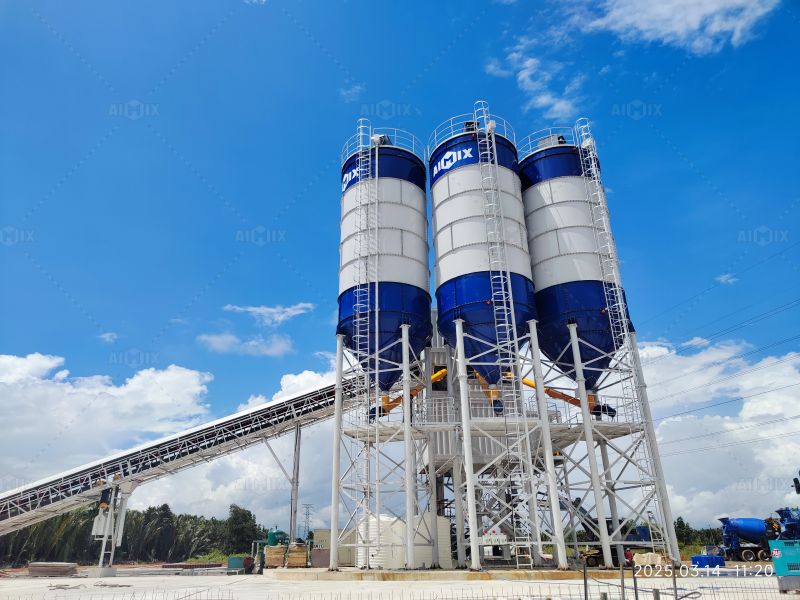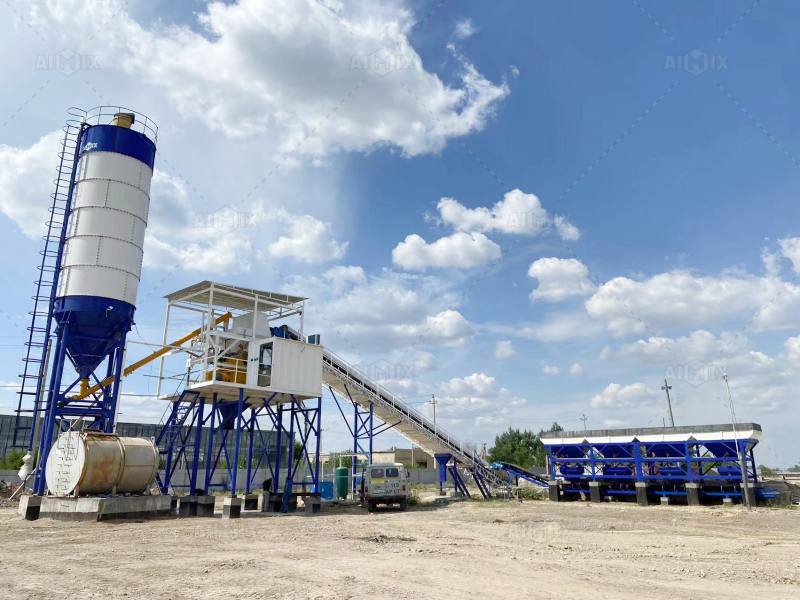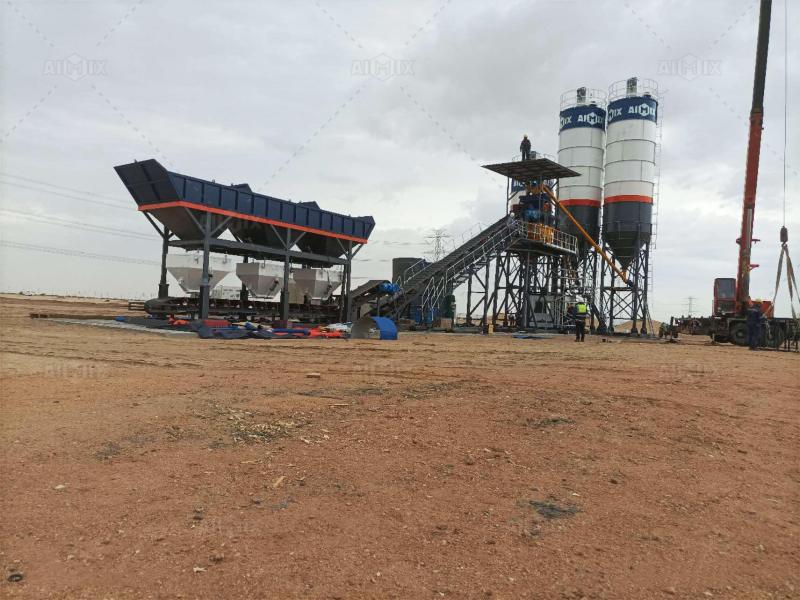The ready mix concrete (RMC) industry has experienced significant growth in recent years, driven by various factors ranging from technological advancements to sustainability initiatives. This article delves into the key market trends influencing the expansion of ready mix concrete batching plant globally.

1. Technological Advancements in Batching Plants
Modern ready mix concrete batching plants are increasingly adopting advanced technologies to enhance efficiency and precision. Automation plays a pivotal role, with many plants integrating automated batching systems that ensure accurate material proportions, reduce human error, and improve overall productivity. Additionally, the incorporation of real-time monitoring sensors allows for continuous tracking of production parameters, enabling timely interventions and minimizing downtime.
Building Information Modeling (BIM) is another technological advancement gaining traction in the industry. BIM facilitates detailed planning and visualization of construction projects, leading to optimized resource allocation and reduced material wastage. The integration of the Internet of Things (IoT) enables remote monitoring and predictive maintenance of batching plant equipment, further enhancing operational efficiency.
2. Sustainability and Eco-Friendly Practices
Environmental concerns have prompted the ready mix concrete industry to adopt sustainable practices. The use of green batching plants, which incorporate energy-efficient equipment and renewable energy sources, is on the rise. Additionally, the incorporation of recycled materials, such as crushed concrete and glass, into concrete mixes helps reduce the demand for virgin raw materials and lowers the carbon footprint of construction projects.
Governments worldwide are implementing stricter environmental regulations, compelling the industry to innovate and adopt eco-friendly solutions. The use of supplementary cementitious materials (SCMs), such as fly ash and slag, is becoming more prevalent, replacing a portion of Portland cement in concrete mixes and further reducing emissions.
3. Customization and High-Performance Concrete
The demand for customized concrete solutions is increasing as construction projects become more specialized. Ready mix concrete batching plants are responding by offering tailored mix designs that meet specific project requirements, such as enhanced strength, durability, or workability.
High-performance concrete (HPC) is gaining popularity, particularly for infrastructure projects that require superior durability and resistance to environmental factors. Innovations in HPC formulations include the use of nano-materials and advanced admixtures that improve workability and performance. Self-consolidating concrete, a type of HPC, flows easily into formwork without the need for vibration, reducing labor costs and speeding up construction timelines.

4. Urbanization and Infrastructure Development
Rapid urbanization, particularly in emerging economies, is driving the demand for ready mix concrete. Countries like China and India are witnessing significant construction activities, including residential, commercial, and infrastructure projects. Governments are investing heavily in modern infrastructure, such as roads, bridges, and commercial buildings, which is pushing the demand for efficient and high-volume batching plants.
The Asia Pacific region is the largest and fastest-growing market for ready mix concrete batching plants, with a compound annual growth rate (CAGR) of 6.2% during the forecast period.
5. Integration of Artificial Intelligence and IoT
The integration of artificial intelligence (AI) and the Internet of Things (IoT) is revolutionizing the ready mix concrete industry. AI-driven quality control systems are enhancing mix consistency and reducing material wastage. IoT-enabled fleet tracking allows for real-time monitoring of delivery vehicles, ensuring timely and efficient transportation of concrete to construction sites.
Predictive maintenance, powered by AI and IoT, ensures minimal downtime by identifying potential equipment failures before they occur. This proactive approach to maintenance reduces operational cost of batching plant and extends the lifespan of batching plant equipment.
6. Mobile and Compact Batching Plants
The demand for mobile and compact batching plants is increasing, particularly for smaller construction projects or areas with limited space. These plants offer flexibility, ease of transportation, and quick installation, making them ideal for remote or temporary construction sites.
Mobile batching plants are equipped with advanced control systems and automation features, ensuring consistent mix quality and efficient production. Their compact design allows for easy relocation, reducing logistical challenges and downtime associated with traditional stationary concrete mixing plants.

7. Supply Chain Optimization
Efficient supply chain management is crucial for the timely delivery of ready mix concrete to construction sites. Advanced logistics software is reshaping how producers coordinate with suppliers and contractors, ensuring that materials are delivered on time, routes are optimized, and resources are used efficiently.
Predictive analytics powered by artificial intelligence (AI) is further revolutionizing supply chain management. By analyzing historical data and real-time inputs, these systems enable producers to forecast demand, adjust inventory levels, and plan deliveries with precision. This capability reduces waste, prevents material shortages, and helps plants adapt quickly to changes, such as weather delays or shifting priorities.
8. Customer-Centric Services
Producers who focus on anticipating and meeting individual client needs with customized solutions are differentiating themselves in the competitive market. Ready mix producers are increasingly offering customizable mix designs to meet specific project requirements, such as strength, durability, or sustainability goals.
Flexible delivery schedules and value-added services, such as on-site technical support, further enhance customer experience. By providing tailored solutions and responsive services, ready mix concrete producers are building long-term client relationships and fostering loyalty.
Conclusion
The ready mix concrete batching plant market is experiencing significant growth, driven by technological advancements, sustainability initiatives, and increasing demand from urbanization and infrastructure development. The integration of automation, AI, and IoT is enhancing operational efficiency, while the adoption of eco-friendly practices is aligning the industry with global environmental goals.
As the market continues to evolve, producers who embrace innovation, prioritize sustainability, and offer customized solutions will be well-positioned to meet the growing demands of the construction industry. The future of ready mix concrete batching plants lies in their ability to adapt to changing market dynamics and deliver high-quality, efficient, and environmentally responsible concrete solutions.